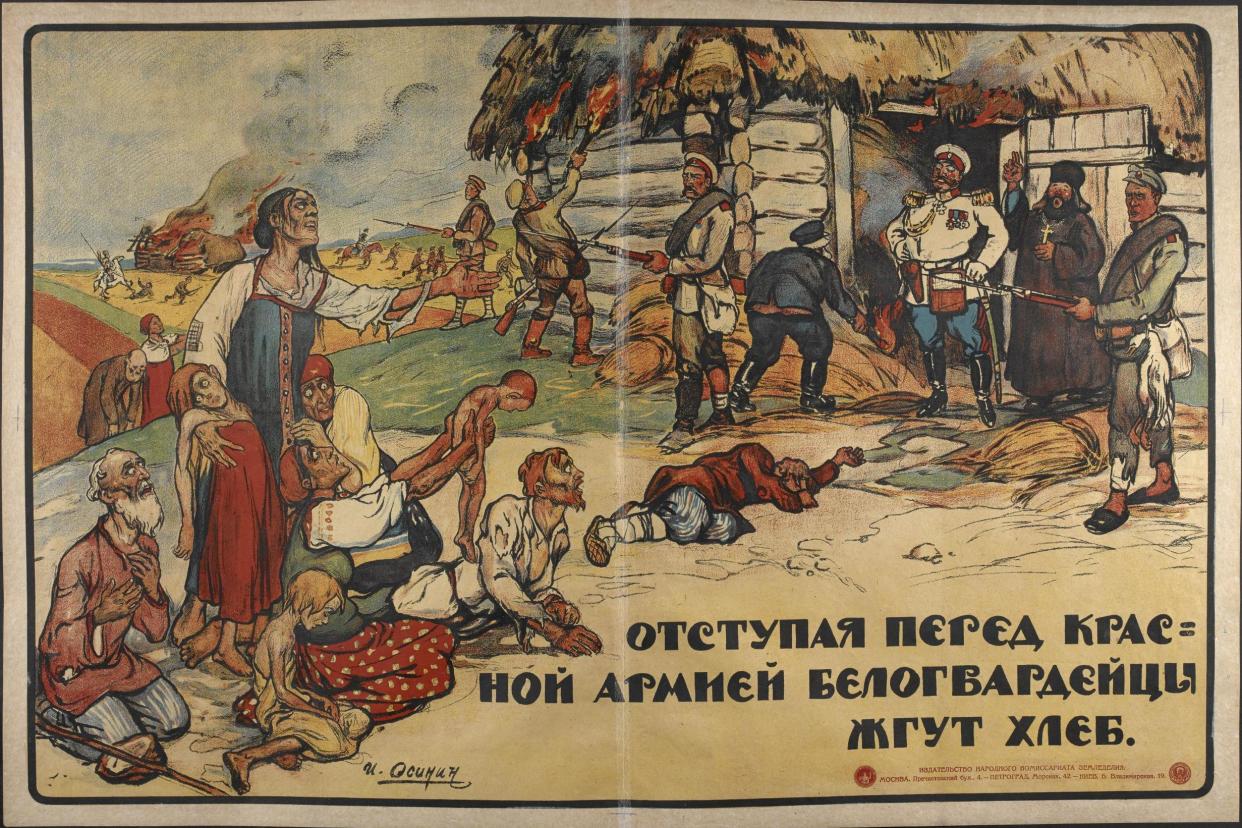British Library puts banned Bolshevik books on show in journey through Russian Revolution

A bag of Bolshevik propaganda banned by Scotland Yard is going on show at the British Library in a new exhibition about the Russian Revolution.
The books were given to the British Library in 1921 by Soviet Russia — leading to fears that they could foment rebellion in the minds of readers.
Among the exhibits is a Scotland Yard letter saying that “works directly advocating revolution have been set aside as undesirable for immediate issue”.
After the revolution in February 1917 that led to the abdication of Tsar Nicholas II, the Bolsheviks, led by Vladimir Lenin, seized power in October and set about imposing communist rule.
The country descended into civil war, with the Bolsheviks’ Red Army fighting foreign forces and so-called White Russians opposed to Lenin’s rule. By 1922, Russia was mostly in Bolshevik hands.
Curator Katya Rogatchevskaia said the parcel, which also included children’s books and medical texts as well as Bolshevik propaganda, was an “unwanted gift” for the library but was delivered at the insistence of communist leaders in Moscow. She said: “I think there was a really strong sense of the value of the library because before the revolution there was a large émigré population in London who studied there.
“We know Lenin studied there, we still have his library card, and there were others. There was this thinking that this was a world-renowned institution and [Bolshevik] material should be there.”
Other exhibits in the show, which opens tomorrow, include first editions of the Communist Manifesto, published in London in 1848, and of Doctor Zhivago, Boris Pasternak’s 1957 novel spanning pre and post-revolutionary Russia. White Russian propaganda and leg irons from a Siberian prison camp will also go on display.
Ms Rogatchevskaia said it was “impossible to understand the world today without an understanding of the Russian Revolution”. She said: “This is the event that shaped the modern world, the seismic event of the 20th century.
“This is a very modern story of a political crisis, a refugee crisis, of the masses against their political leaders.”
Russian Revolution: Hope, Tragedy, Myths runs until August 29.

 Yahoo News
Yahoo News 
